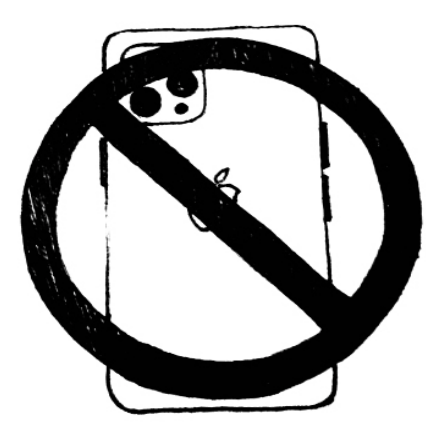Let Students Learn How To Manage Cellphone Use
Proposed cellphone policy takes away student autonomy
June 15, 2023
Venice High School has gone through many recent physical changes, but there is a possibility that the newest change to Venice could be a major one related to technology use.
Recently, a proposal for a new cell phone policy was presented at an School Based Management meeting by Leonard Beckerman that has Venice becoming a completely phone free campus from the hours of 8:20 am and 3:37 pm.
However, an amendment to the original proposal may allow students to use their cell phones during nutrition and lunch.
The proposal is influenced by schools in the area that already have a cell phone-free campus, including Mark Twain Middle School down the street. The policy would encompass all phones, headphones, earbuds, and Bluetooth-enabled technology to be put away in students’ backpacks for the entirety of the day.
The policy boasts many potential positive effects, such as strengthening campus community supporting students’ academic growth and social-emotional wellness. However, as a senior who for the most part physically went to school without this policy in place, I’m not very sure how behind the proposal I am.
I know for a fact that I wouldn’t have half as many memories from my high school years had I not had access to my phone or an electronic device during my own time. The countless photos of me and my friends throughout the day, or texts planning after school outings, or even calling a friend to see where on campus they were if I needed to find them.
I think it’s necessary to teach students good cell phone usage balance rather than completely taking it away. Students leaving this school will enter a world where they are constantly using and being surrounded by technology, and if they don’t learn early on how and when to use it for work and when to use it for themselves, they’ll crumple under the weight of that freedom. We would be doing students a disservice in not preparing them adequately for that reality.
For the media classes, including Journalism, Graphic Communications, or Introduction to Design, there would be exceptions to this new policy; in addition, there would be a pass for students with medical exceptions.
The policy would rely heavily on the compliance of both students and teachers to enforce it. Teachers would be asked to adopt the cell phone policy over their own individual classroom ones. This may put teachers in a predicament if a student decides they do not want to comply, because then teachers are tasked with confiscating phones. Then, unfortunately, a larger disruption to the class may ensue when the teacher has to repeatedly ask for the phone or call the dean to deal with the situation.
While a cell phone free campus sounds nice in theory, the reality is that students have become far too used to having cell phones on them, and to take that away would be the same as taking away a meaningful tool for the 21st century.


